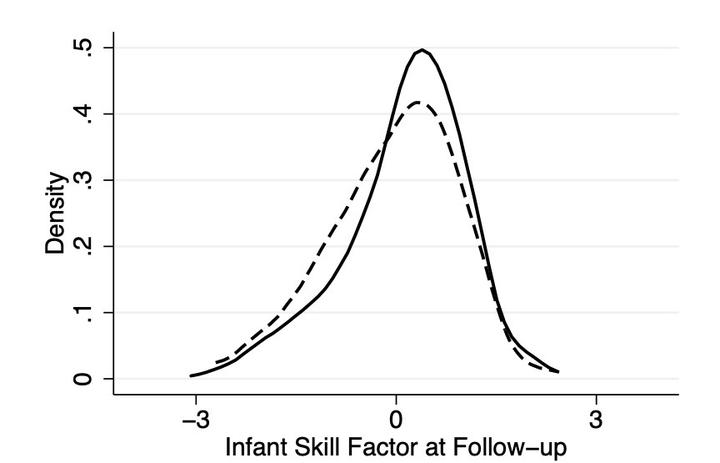From Quantity to Quality: Delivering a Home-Based Parenting Intervention Through China's Family Planning Cadres

Abstract
A key challenge in developing countries interested in providing early childhood development (ECD) programmes at scale is whether these programmes can be effectively delivered through existing public service infrastructures. We present the results of a randomised experiment evaluating the effects of a home-based parenting programme delivered by cadres in China’s Family Planning Commission (FPC)— the former enforcers of the one-child policy. We find that the programme significantly increased infant skill development after six months and that increased investments by caregivers alongside improvements in parenting skills were a major mechanism through which this occurred. Children who lagged behind in their cognitive development and received little parental investment at the onset of the intervention benefited most from the programme. Household participation in the programme was associated with the degree to which participants had a favourable view of the FPC, which also increased due to the programme.